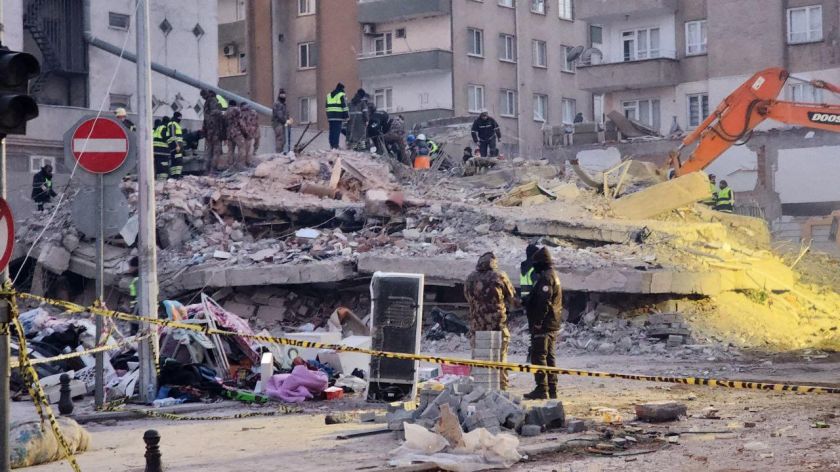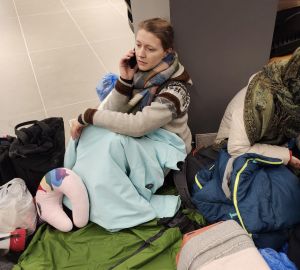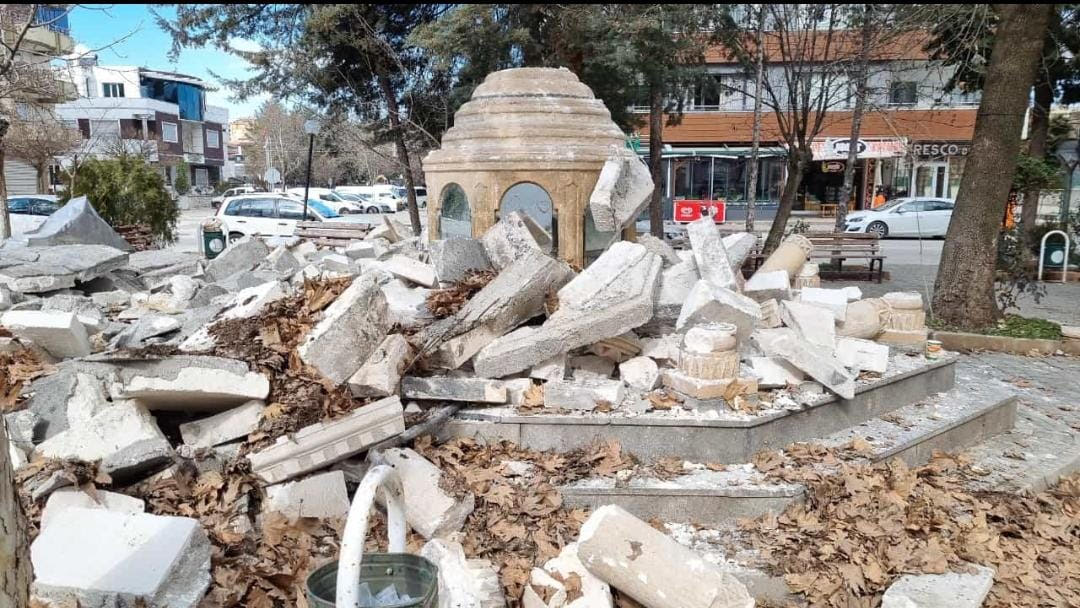Student Kerstin was in Gaziantep during earthquake: ‘Sense of solidarity was very impressive’
-
 Reddingswerkers in actie in een woonwijk in de Turkse stad Gaziantep. Eigen foto
Reddingswerkers in actie in een woonwijk in de Turkse stad Gaziantep. Eigen foto
She’s returned from Turkey safe and sound, but the shock has yet to wear off. Radboud student Kerstin Borgel Kleinhaus had been in the Turkish city of Gaziantep for only ten days, when the city turned into a disaster area overnight. ‘I was literally shaken from my bed.’
She managed to escape unscathed from the earthquakes, which terrorised the region surrounding the major city of Gaziantep. ‘But I still need to process everything I’ve gone through’, says master’s student Kerstin Borgel Kleinhaus (33); She hasn’t had time the past few days.

Her thoughts are with all the victims in Turkey and Syria, as well as her former colleagues at an aid organisation in Gaziantep, who are now busy saving everyone and everything they still can. ‘I was very impressed by the sense of solidarity. A huge crisis like this brings people together; everybody’s willing to help’, she says from her hometown Rheine, in Germany.
Barefoot
Borgel Kleinhaus is doing her second master’s at Radboud University. After her first master’s, she worked with an aid organisation in Gaziantep for five years. Now, she is following the track Conflicts, Territories and Identities, which tackles the hardships that aid organisations have to deal with in war-torn territories.
‘Within seconds, everybody was in the hallway, ready to bolt’
‘As part of that track, I went to Turkey a week and a half ago, to meet with former colleagues and do interviews for my master’s’, she says. ‘I was supposed to stay there for a few weeks.’
But things turned out differently. While staying with a former colleague, disaster struck the Turkish and Syrian area. ‘I was literally shaken from my bed. Within seconds, everybody was in the hallway, ready to bolt. I barely had time to put my shoes on; I saw many people barefoot, outside in the snow.’
Taking shelter in cars
According to Borgel Kleinhaus, the earthquake lasted multiple minutes. Although no buildings collapsed in their immediate vicinity, nobody dared to venture back into the houses. ‘People took shelter from the cold in their cars. We didn’t have one ourselves, but we could share with someone else.’
The full scale of the disaster didn’t become apparent until the next morning. ‘My colleague briefly went into her home, to collect blankets and her cat. That was right when the second quake hit, so she quickly ran back outside.’

Afterwards, they took refuge in a culture centre, a kind of museum, that was well-built and withstood the quake without issue. ‘We stayed there for three days, with 200-300 other people. I asked around to see if I could help, but communication was difficult. I felt it was better to fly back home than to burden emergency services with my presence.’
‘People are afraid to enter their homes – even if they’re still standing’
She greatly admires her colleagues, who are working tirelessly to coordinate emergency aid, while simultaneously trying to get themselves and their families to safety. ‘All while they may have lost relatives themselves. That’s heavy.’
En route to the airport in Ankara, she saw a massive exodus from Gaziantep. ‘People are afraid to enter their homes – even if they’re still standing. They’re afraid of another quake, and they’re not sure if their homes have suffered damage, or if they’re still safe. That is why a lot of people are taking refuge with family or friends in other regions. But many people don’t have that option.’
This article was translated by Jasper Pesch. The original Dutch article by Maarten Reith was published in De Gelderlander earlier.



